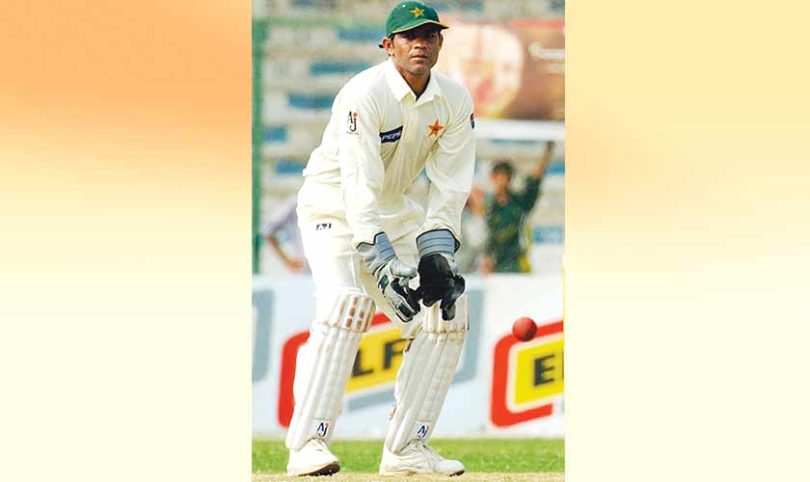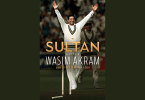Omair Alavi|Sports|August 23, 2020
The wicket-keeper who would have been a legend had he not preferred to retire from cricket to save cricket
Rashid Latif
Former Pakistan skipper Saleem Malik who once offered money to Australian cricketers to lose a match is back in the news again, but not for the right reasons. In a hurriedly arranged press conference recently, the tainted Test cricketer disclosed that his former colleague and ace wicketkeeper Rashid Latif threatened him in the mid-90s and he wanted the media to question Rashid Latif about it. What Saleem Malik conveniently avoided mentioning was that Rashid, even if he threatened him, wanted his former captain to stop throwing away his wicket and losing matches deliberately, and when he didn’t listen to him, went public with his allegations that changed the way people saw cricket.
Why it took the former captain more than two decades to come up with such a disclosure is beyond anyone, but one thing is certain: the threat did rattle Saleem Malik. Rashid Latif must be commended here for he didn’t care for his career and preferred to free the game of malpractice, thus earning the title of Pakistan’s Mr Cricket.
Here we talk about players who never indulged in unlawful practices such as ‘Mankading’ a runner, throwing a tantrum or even hitting a spectator. Let’s take a look at these cricketers (minimum 50 Tests) and how they helped Pakistan become a side others were afraid of.
Mushtaq Mohammad
(1959-1979)
If Pakistan is winning matches in this day and age it is because of the fighting spirit that Mushtaq Mohammad instilled in the boys, who included an unknown (until that time) Imran Khan as well. He was a perfect all-rounder who could dent the batting line up of the opposite team, score a double hundred and take stunning catches in the field. In the first decade of his career, he was overshadowed by Intikhab Alam who wrongfully believed himself to be a better bowler; in the latter half, he was the thinking brain that saw Pakistan stand up to Australia, England, India and the West Indies, and even win matches.
Unlike his predecessors, Mushtaq Mohammad didn’t go for delaying tactics like going for a draw, and usually went for a win. The twin victories against a powerful Indian side in 1978 is a proof of that. Pakistan won matches that would have ended in a draw had Inti bhai been at the helm. ‘Mushy’ did make a return to the national side as a coach and ‘coached’ Pakistan to the final of the World Cup in 1999, and was instrumental in polishing Saqlain Mushtaq’s bowling, making him a threat at the international level.
Majid Khan (1964-1983)
If Michael Hussey is Australia’s candidate for Mr Cricket, then Majid Khan is Pakistan’s, because the dashing batsman was the perfect specimen of a gentleman cricketer. Dressed in whites from head to toe, and always looking classy and elegant, Majid Khan never lost his cool even in matches that could have gone either way. Even when he did retaliate to Kapil Dev’s negative bowling in a Test match, he didn’t charge the bowler (like Javed Miandad would later on) but registered his complaint with the umpire.
According to cricket folklore, if Majid Khan appealed for a catch, the umpires usually raised their finger. Such was his reputation when he was playing cricket during the 1970s and the 1980s. Had he not been unceremoniously axed by his cousin Imran Khan, Majid Khan might have become Pakistan’s first batsman to cross 4000 run mark in Test cricket, a feat that has been surpassed by many. But no one has been able to score a century before lunch for Pakistan in Tests, and Majestic Majid remains the only one to do so.
Wasim Raja (1973-1985)
He was not just a dashing left-handed batsman but a leg-break all-rounder who could save runs in the field as well. Wasim Raja was the perfect candidate for captaincy in the latter part of his career not because he was a senior cricketer but because he was highly educated, presentable and above all, one who never went to the dark side. However, with the emergence of first Javed Miandad and later Imran Khan, he preferred playing as a specialist all-rounder and left the game gracefully after his younger brother became part of the national side.
He switched to teaching after retirement from the game and used to teach different subjects at Caterham School in Surrey. Despite settling abroad, his love of the game didn’t diminish and he did coach the Pakistan team for a short time and even won an ODI tournament in Sharjah. He also served as an ICC Match Referee. He died of a heart attack while playing cricket for the Surrey over-50s side in 2006.
Rashid Latif (1992-2003)
And then there was Rashid Latif, the wicket-keeper who would have been a legend had he not preferred to retire from cricket to save cricket. People might remember Shahid Afridi who in 2010 retired from Test cricket because he saw some players involved in fixing matches, but in reality it was Rashid Latif who provided the blueprint a decade and a half earlier. At a time when he was not just the vice-captain of the Pakistan side and easily the best wicket-keeper in the world, Rashid Latif chose to name his teammates whom he believed were not giving their 100 percent while playing for Pakistan.
His act ensured that in the future, strict measures would be taken to clean the game. Had Rashid Latif chosen to stay quiet like his manager Intikhab Alam, he might have captained Pakistan in Saleem Malik’s absence, but he wouldn’t have been able to save the game he played. In my book, he deserves to be Mr Cricket for his selfless act, and the more we appreciate it, the more Saleem Malik will get angry!







